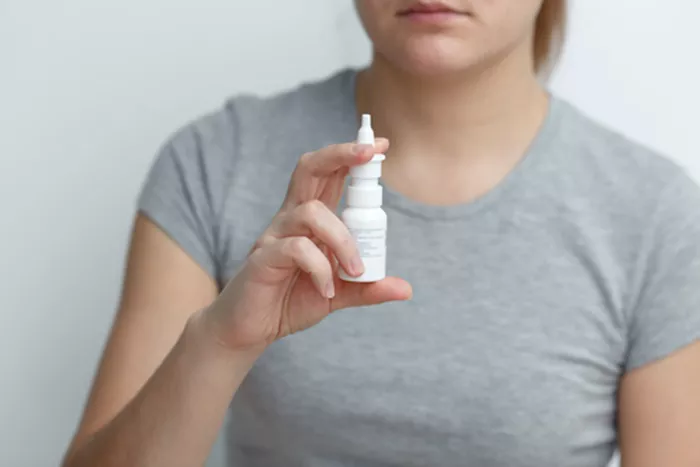Hair transplant surgery is a significant decision for those experiencing hair loss. The procedure promises new hair growth and a restored appearance. However, the success of a hair transplant doesn’t only depend on the surgery itself. Post-operative care plays a crucial role in ensuring the best possible outcome. One essential aspect of this care is spraying saline solution on the transplanted area. But how long should you continue this practice? This article provides a detailed guide on the duration and importance of spraying saline after a hair transplant.
The Importance of Saline Spray After Hair Transplant
Helps Keep the Scalp Clean
Saline solution helps keep the scalp clean by washing away any blood, crusts, or dirt that may accumulate. This cleanliness is crucial to prevent infections and ensure the healing process proceeds smoothly.
Reduces Swelling and Discomfort
After a hair transplant, it’s common to experience some swelling and discomfort. Saline spray can help reduce these symptoms by soothing the scalp and reducing inflammation.
Promotes Faster Healing
Keeping the scalp hydrated with saline spray can promote faster healing. The moisture provided by the saline solution helps the skin recover more quickly from the trauma of the transplant surgery.
See also: Is Hair Transplant Very Risky?
How to Use Saline Spray Correctly
The Right Technique
It’s essential to use the saline spray correctly to reap its benefits. Hold the spray bottle about 6-8 inches away from the scalp. Gently mist the transplanted area, ensuring even coverage without drenching the scalp.
Frequency of Application
In the initial days post-surgery, you may need to spray saline every 2-3 hours. This frequency helps keep the scalp moist and clean, aiding in the healing process. As the days go by, you can gradually reduce the frequency.
Recommended Duration for Saline Spray
First 24 Hours
In the first 24 hours after your hair transplant, it’s crucial to keep the scalp moist. Spray the saline solution every 2 hours to ensure the newly transplanted grafts are well-hydrated and the area is clean.
Days 2-5
During days 2-5, continue spraying saline every 3-4 hours. This period is critical for the grafts to settle in and begin the healing process. Consistent saline application will help maintain a moist environment conducive to healing.
Day 6 to Week 2
From day 6 to the end of the second week, you can reduce the frequency to 3-4 times a day. By this time, the initial swelling and discomfort should start to subside, but maintaining moisture is still essential.
Weeks 3-4
In weeks 3-4, spraying saline once or twice a day should suffice. The transplanted grafts will be more stable, but keeping the scalp hydrated can still aid in the healing process and prevent any crust formation.
After One Month
After one month, you can stop using the saline spray unless advised otherwise by your doctor. The transplanted hair should be well-settled, and the scalp should have healed significantly.
Factors Influencing the Duration of Saline Use
Individual Healing Process
Every individual’s healing process is different. Some people may heal faster, while others might take a bit longer. It’s essential to monitor your scalp and adjust the saline spray frequency based on your healing progress.
Doctor’s Recommendations
Your doctor will provide specific instructions tailored to your individual case. Always follow your doctor’s recommendations regarding the duration and frequency of saline spray use.
Type of Hair Transplant Procedure
The type of hair transplant procedure you underwent (FUT or FUE) may also influence the duration of saline spray use. Your doctor will guide you on the best post-operative care based on the specific procedure you had.
Potential Risks of Not Using Saline Spray
Infection Risk
Not using saline spray can increase the risk of infection. The saline helps keep the scalp clean, reducing the chances of bacterial growth and infection.
Delayed Healing
Without regular saline application, the scalp may become dry and crusty. This dryness can delay the healing process and potentially affect the success of the hair transplant.
Discomfort and Swelling
Skipping saline spray can lead to increased discomfort and swelling. The soothing effect of saline helps manage these post-surgery symptoms effectively.
Additional Tips for Post-Transplant Care
Avoid Touching the Scalp
It’s crucial to avoid touching or scratching the transplanted area. Touching can introduce bacteria and increase the risk of infection. It can also dislodge the newly transplanted grafts.
Stay Hydrated
Drinking plenty of water helps keep your body and scalp hydrated from the inside out. Proper hydration supports overall healing and promotes healthy hair growth.
Follow a Healthy Diet
A healthy diet rich in vitamins and minerals can support the healing process and promote hair growth. Include foods high in vitamins A, C, E, and zinc in your diet.
Avoid Strenuous Activities
For the first few weeks post-surgery, avoid strenuous activities that can increase blood flow to the scalp and cause swelling or bleeding. Stick to light activities and gradually reintroduce exercise as advised by your doctor.
Protect Your Scalp from the Sun
Exposure to the sun can damage the sensitive transplanted area. Wear a hat or use sunscreen to protect your scalp when you go outside.
Use Gentle Hair Care Products
Use gentle, non-irritating shampoos and conditioners during the healing process. Avoid products with harsh chemicals that can irritate the scalp.
Conclusion
Spraying saline solution after a hair transplant is a crucial part of the post-operative care process. It helps keep the scalp clean, reduces swelling and discomfort, and promotes faster healing. The duration for using saline spray typically ranges from a few days to a month, depending on individual healing processes and doctor’s recommendations. By following the guidelines and maintaining proper scalp care, you can enhance the success of your hair transplant and enjoy the best possible results. Always consult your doctor for personalized advice and follow their instructions closely for optimal healing and hair growth.
You May Be Interested In

